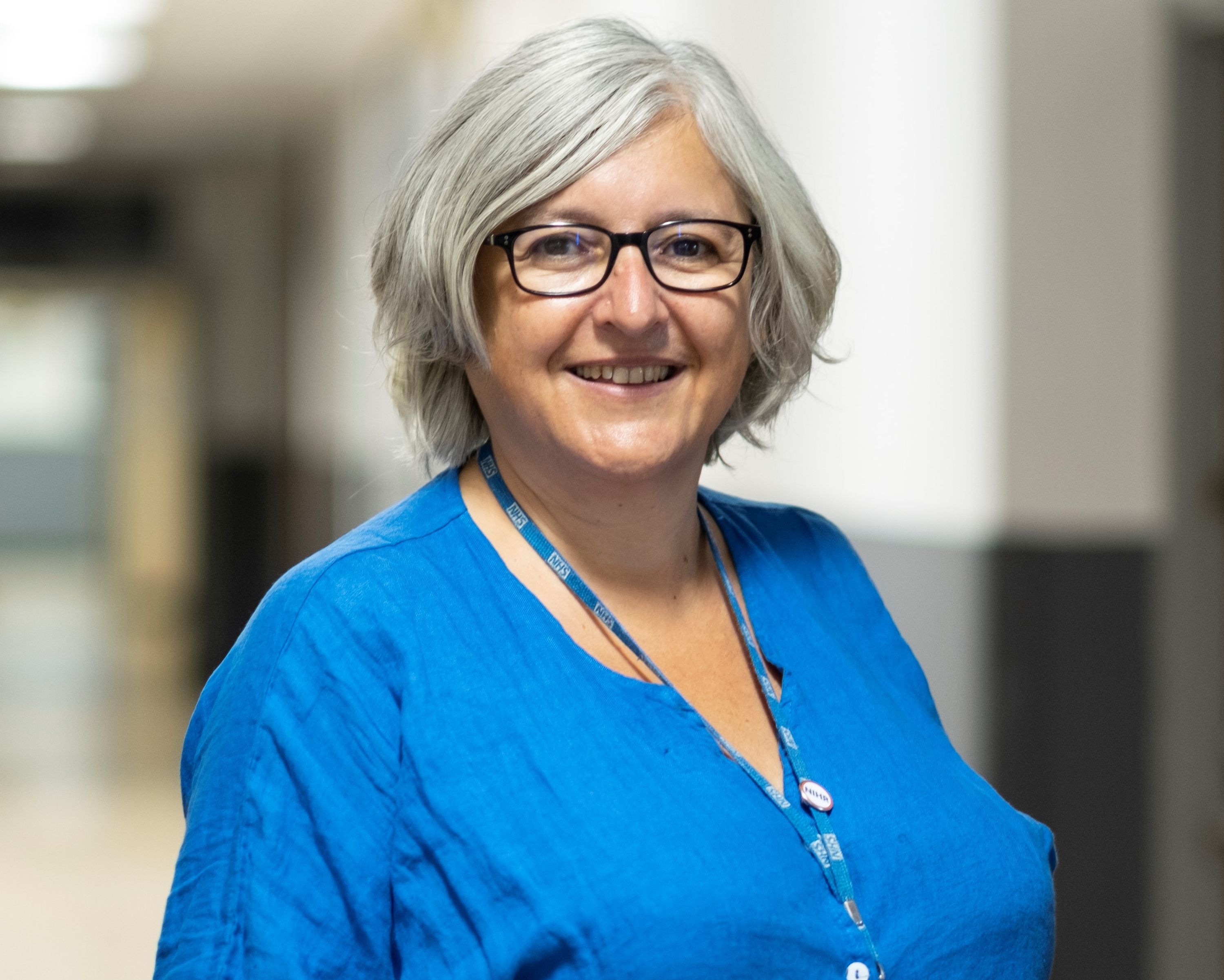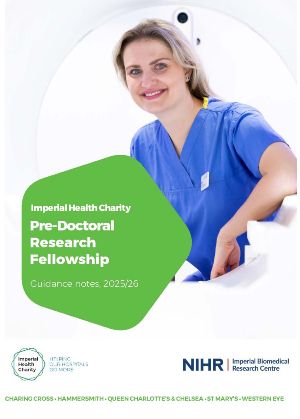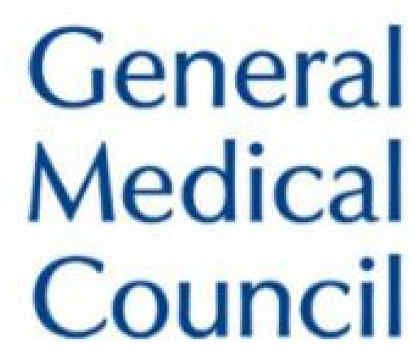Update: 22 December 2021
Guidance for clinical academics during future COVID-19 pandemic: Addressing the challenges of Omicron and future COVID 19 pandemics
NIHR, the Clinical Academic Training Forum Working Group and most major research funders have clarified some overarching principles and practical actions in response to future significant disruption to clinical academic training due to the Omicron variant of COVID-19 or future waves of COVID-19, locally or nationally. The guidance and principles are broadly consistent with those issued in January 2021, including:
- a return to support the NHS clinical response to pressures caused by the pandemic is voluntary for those in clinical academic posts
- trainees should not arrange any clinical placements outside of the agreed local deanery/HEE process.
Full details of the guidance can be found on the NIHR website
Actions for clinical academic trainees:
- Not to arrange any clinical placements outside of the agreed local deanery process. Neither the return to clinical service and the subsequent return to research should occur without the approval of the Postgraduate Deanery
- To carefully plan, in discussion with the Postgraduate Dean (or their nominated deputy), TPDs and research supervisors, any voluntary return to clinical service and then back to academic roles
- To discuss with their research funder regarding changes to research plans as soon as possible
- To consider whether some research activity can be continued that can add value to research experience and training
In addition to the above, the Imperial College Faculty of Medicine has guidance and processes in place for College employed clinical staff – i.e. CLs and most clinical PhD Fellows. For the avoidance of doubt, at the present time (22/12/21) Imperial College London has not received any formal request from the NHS for such assistance during the current wave from College-employed clinical staff. However, should the call come, and the need arises, College employed trainees should gain the relevant approvals and complete the online forms to record their time spent doing clinical service.
Full details on the FoM Guidance can be found here
In all cases, if you are considering whether to support NHS clinical service during future pandemics you should talk to your supervisor (and line manager/Academic Lead where relevant) to consider the impacts on your academic work alongside any third-party requirements, in order to plan appropriately and get approval for any NHS clinical support for the COVID-19 response you decide you wish to offer.
15 January 2021: NIHR/HEE update: Redeployment of Clinical Academic Trainees
The UK-wide Clinical Academic Training Forum, NIHR and Postgraduate Deans all remain highly supportive of clinical academic trainees who are able to volunteer to support the NHS clinical response to COVID-19. Guidelines to support redeployment of these volunteers are available at https://www.nihr.ac.uk/documents/addressing-the-challenges-of-covid-19-second-wave-or-another-pandemic/25779
- Academic trainees vary in their clinical skills, speciality and academic training requirements. Each voluntary deployment must be appropriately funded and be carefully discussed beforehand with the trainee and their supervisors. All must be prospectively approved by their postgraduate dean. Such deployments should not continue beyond what is necessary to support the current COVID response. Imperial College academic trainees who decide to return to clinical service to support the Covid response must make the decision together with College supervisors, line managers and Heads of Department, and the sign up process described on the FoM sharepoint pages must be followed.
Funding arrangements should be agreed locally with medical schools in advance of any deployment. Any necessary invoicing should ideally be on a monthly basis. It is recommended that they are not deferred until the end of the clinical placement.
12 January 2021
In light of the current pressure on the NHS, the Imperial College Faculty of Medicine has devised a process to enable the College, CATO and your academic departments to best support you in any choices you may be being asked to make about offering support to the NHS at this time. We are conscious that many of you have received several communications over the last few days from NHS partners, HEE and elsewhere about where you could volunteer to support the NHS if you are able to do so. The wording of recent communications from HEE may have caused some confusion. And of course the Faculty of Medicine currently remains open for teaching, and for research.
To be clear and to reassure you there is no mandated return of OOPR Clinical Research Training Fellows to clinical work, and HEE will not be allocating OOPR clinicians to specific clinical duties. ACFs should, if at all possible, rearrange academic research blocks so they can undertake clinical duties (in discussion with clinical training programme directors). On 7 January the Dean also updated clinical employees in the Faculty about where ICHT is seeking support - some of you will have received this message as staff members. The Faculty is working closely with the Trust(s) to create clear guidance wherever possible. Please refer to the emails received from the Faculty or CATO to access the links explaining the process and the forms that need completing.
The three main take home points to remember are:
- Return to clinical work for clinical academics currently doing research is voluntary, not mandated, but encouraged where possible.
- Any decision to return must be agreed by College supervisors, line managers and Heads of Department, and the sign up process described on the FoM sharepoint pages must be followed.
- ACFs, CLs and clinical OOPR (medical) PhD fellows who have questions about potential return to clinical work can approach Prof Jeremy Levy to discuss their circumstances or any concerns (j.levy@imperial.ac.uk)
27 November 2020
“The Imperial College Faculty of Medicine has put in place new guidance on the management of COVID-19 clinical service provided by College employed clinical staff. The requirements are applicable to any Imperial College London employed member of clinical staff within the FoM who may be redeployed to support Covid-19 pandemic related clinical service in the NHS for future waves, and encompass:
- Considering any new period of COVID19-related clinical service activity staff may be approached to provide to the NHS over the coming months
- Gaining approval for and registering of such activity should staff wish to proceed with this activity
- Managing any associated recharge or contract change activity for that period of service
For more information, please click here
24 September 2020
Following the re-deployment of many clinical academics during the first wave, there is a clear agreement that in any future clinical COVID-19 surges, universities and funders will all do everything possible to protect clinical academics in training and their research time: see this useful document from CATF CATF working group COVID 19 Second Wave Principles
Maintaining PGME and training - Four nations principles - useful information from the NHS about maintaining Postgraduate Medical Education and Training.
7 April 2020
The disruption to research programmes, posts and individuals at Imperial caused by the Covid-19 crisis is unprecedented. The suspension of non-routine research, switch of College operations to remote working and the call for clinical academics to return to clinical work has raised concern and numerous questions for affected individuals. The university, funders of research and others are working hard to respond to these challenges to adjust processes, and provide flexibility and reassurance for those whose clinical academic research has been disrupted. The situation is constantly evolving and incredibly complex - we do not have all the answers yet, but they are being worked on. The FAQs below provide some general principles and guidance which we hope will be helpful in the meantime.
FAQs
- What is Interruption of Studies for clinical PhD/MD(Res) fellows?
- Will the end point of time ‘Out of Programme’ periods approved by Health Education England for doing PhD/MD(Res) be extended?
- What happens to my clinical PhD research salary paid through the College if I return to the NHS to do clinical work during the Covid-19 crisis?
- Will my employment rights/continuity of service be impacted by switching to NHS funding/salary during this time?(College salaried PhD fellow or CL)
- PGR Departmental contacts, Imperial College London Faculty of Medicine
- What happens about lost or disrupted research blocks for Academic Clinical Fellowship and Clinical Lecturer posts?
- Nobody has approached me yet about returning to NHS service during the crisis - who should I contact?
Many fellows will need to formally interrupt their PhD registration with the University for the duration of their time away from research doing clinical work. This ‘IOS’ effectively stops the clock on research degree milestones. Interruption of Studies should be discussed with PhD supervisors and the Research Degree Manager in your respective department and will need authorisation from the Head of Department or a nominee. In the first instance you should contact the Research Degree Manager for your Department to advise them you have returned to clinical work, and then discuss how best to take forward the IOS request. IOS request forms can be found online. https://wiki.imperial.ac.uk/display/medresstudents/Appendix+III+-+forms?preview=/37915845/72189939/IOS%20201617%20onwards.docx
If you are formally having an IOS then be sure to determine whether your funding needs to continue from the University or is being replaced from an NHS Trust. You can have an IOS but continue the University funding stream, but must make this clear. We will reclaim monies from the NHS in due course so your PhD can be extended. If you are not sure the NHS is paying, keep the University funding ! but do not get paid by two sources ..
HEE has indicated that it will support extensions to OOPR to accommodate returns to clinical work during the Covid-19 crisis. This will be resolved in due course but no-one will lose their academic/research time.
If you are asked to return to a clinical role, all the major funders, including the Imperial Health Charity, Wellcome, and BRC are prepared for this and are happy to accommodate you so that you can either make up academic time later or suspend your fellowship in the short term of this critical period. NIHR are requiring trainees they fund to return to clinical service where appropriate. If you do need to do this, please talk to your supervisors and Director of Postgraduate Studies in your Department, and make sure that you contact the relevant person at your funding body. Arrangements for covering your salary whilst you are doing clinical work will vary depending on your research funder and which NHS Trust you work with. In most cases, if possible, it makes sense to ask for salary payments from the College to be suspended and for the Trust to start paying you as soon as possible to ensure full banding is paid correctly and you receiving equal pay as other clinicians working clinically. However, in other cases arrangements have been made for clinical PhD fellows to continue to be paid by the College whilst they work for the NHS on the understanding that the College can re-charge the NHS employer after the end of the deployment. (Note: if you remain on College payroll during your clinical work during Covid-19 the university and research funders do not pay for banding: this will come from the NHS Trust, although can be paid via your university when arranged). In all cases clinical academics are strongly advised to keep accurate records of the time spent in clinical work during the Covid-19 period, which may be needed later.
For further information on your specific circumstances you might want to discuss with your supervisor, local Section Manager or contact your research Funder or the Trust where you are working directly.
All major research funders subscribe to the principle that accrued employment rights must be protected. This includes any changes in employer from a NHS trust/board to an academic institution or vice versa, in principle there should be no detriment to moving in either direction.
|
FoM Department |
Research Degree Manager |
Contact |
Director of Postgraduate Studies |
Contact |
|
National Heart & Lung Institute |
Katerina Koutstantoni |
Professor Mike Lovett |
||
|
Department of Brain Sciences |
Hayley Kendall-Berry |
Professor Kevin Murphy |
||
|
Department of Immunology & Inflammation |
Hayley Kendall-Berry |
Professor Kevin Murphy |
||
|
Department of Infectious Diseases |
Hayley Kendall-Berry |
Professor Kevin Murphy |
||
|
Department of Metabolism, Digestion & Reproduction |
Hayley Kendall-Berry |
Professor Kevin Murphy |
||
|
Department of Surgery & Cancer |
Jennifer Simeon |
Professor Michael Seckl |
||
|
School of Public Health |
Anja Gizdavcic / Hayley Atkinson |
Dr Abbas Dehghan |
||
|
Institute of Clinical Sciences |
Amida Bukuru |
Dr Enrique Martinez-Perez |
NIHR has indicatedthey will be as flexible as possible to help support trainees during the current situation and have offered reassurance that by supporting the national effort they won’t be unfairly penalised in terms of current NIHR awards or future clinical academic careers. This may, for example, include rearranging your research time and clinical time to allow you prioritise clinical work. ACFs in general will simply have academic time after the Covid epidemic, and not need extended ACF time, and this might apply to some CLs. Others may need extensions if this is not possible or clinical training cannot occur in a specialty. This will be resolved case by case.
Contacts will vary from Trust to Trust. For ICHT please contact Dr Ruth Brown ruth.brown8@nhs.net
19 March 2020
Here are some notes about the implications of COVID-19 for your IAT (ACF or CL) and CRF/clinical PhD posts:
- Please use the Trust (or College) intranet as your primary source of information: you should read the daily updates to all NHS/College staff and follow the advice and instructions on the Trust intranet.
- As you are no doubt aware, current clinical research studies have been suspended until further notice, unless exempted (Covid related), and all University research activity.
- Use the time you have available, if not called on clinically or able to do primary research eg sort any processes of Sponsorship / ethics / HRA / Capability and capacity assessment if relevant; read; undertake data analysis; write up what you have done already. Carry on setting yourself goals and targets so that you have some structure in your work - this is when your project and time management skills will really come into play! Many of you may not have spare time if needed clinically of course.
- CRFs (for Doctors in training in UK currently on OOP): If you are asked to return to your clinical role, all the major funders, including the Imperial Health Charity, Wellcome, and BRC are prepared for this and are happy to accommodate you so that you can either make up academic time later or suspend your fellowship in the short term of this critical period. NIHR are requiring all trainees they fund to return to clinical service. If you do need to do this, please talk to your supervisors and line manager and make sure that you contact the relevant person at your funding body. Your departmental Research Degree Manager can advise about interrupting PhD registration with the University. There will be NO problem in extending your fellowship if needed, and resolving who funds the extension in due course (NHS or research funder). The research funders will make available funds if needed for example to keep animal colonies alive, or materials in specific conditions.
- ACFs: if you lose academic time by being called back into clinical work, which is expected, this will be made up later after the summer so you do not lose any academic periods
- CLs: similarly we will ensure you do not lose academic time if you are called back into clinical work, as expected. Some of you may not be able to progress clinically if routine surgery/imaging etc for example is cancelled, even though using clinical time. NIHR will explore case by case the need for extensions to CL posts in due course.
- ALL: Importantly PLEASE DO keep an accurate record of the time/days/weeks you spend in clinical work during this period, which may be needed later. Please ensure your clinical TPD and academic lead are informed by email of the precise date you are seconded back into clinical work.
- Please share any other suggestions and support each other as much as possible.
And some more info here for those of you who are NIHR funded:
MESSAGE FOR CLINICAL ACADEMICS ON BEHALF OF MAJOR FUNDERS AND THE WIDER RESEARCH COMMUNITY (19 MARCH 2020)
https://www.rcplondon.ac.uk/news/clinical-academics-and-covid-19
REGULAR INFORMATION AND UPDATES
For the latest information and advice please visit the dedicated Covid-19 page from Imperial College London, which includes guidance on ‘How will disruption due to Covid-19 impact my research funding’ in the ‘Guidance for Staff’ section http://www.imperial.ac.uk/about/covid-19/
Useful links
Contact us
The CATO Team and Radiographers Incubator work on a Hybrid model, combining days in the office with days working from home – the best way to reach us is by email.
cato@imperial.ac.uk
radresearch@imperial.ac.uk
+44 (0)20 3313 7397



